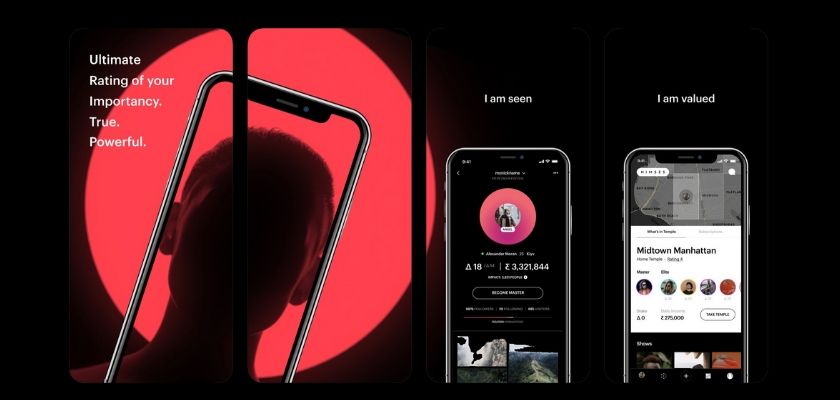
What is Nimses and why is it a privacy nightmare?
Nimses has been in the news a lot this week as it attempts to crack the US market.

Nimses has been in the news a lot this week as it attempts to crack the US market.

People are starting to pay attention to facial recognition at airports.
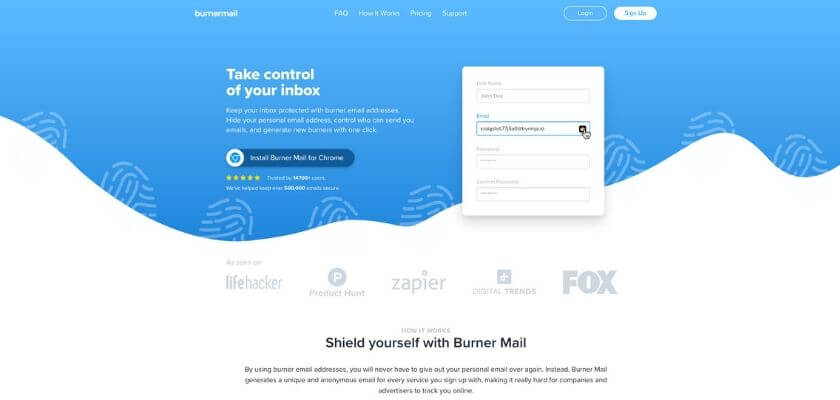
Having a different email address for each account is a great way to dramatically increase security.
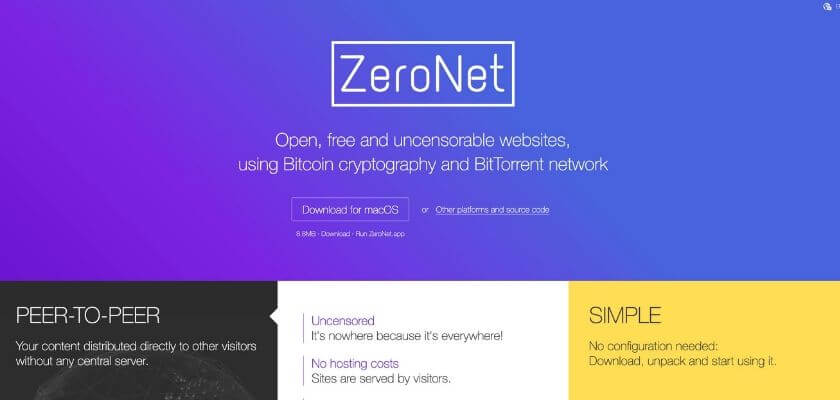
Websites that can’t be censored are becoming more popular in recent months.
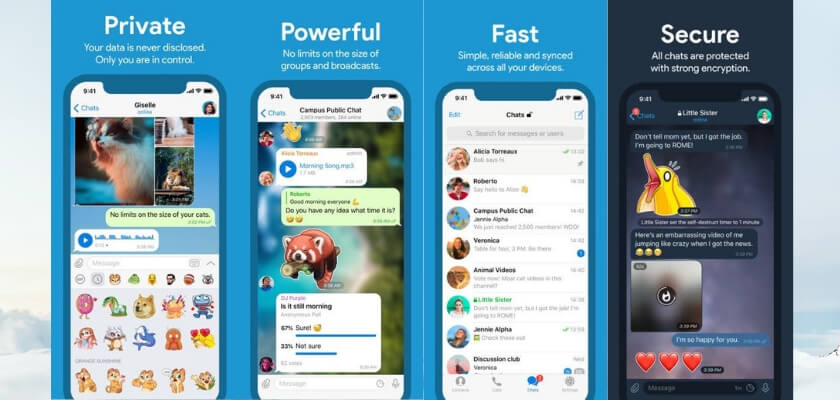
Telegram is growing popular in recent months.

Assange is spending 23 hours per day in a cell for a “minor violation”.
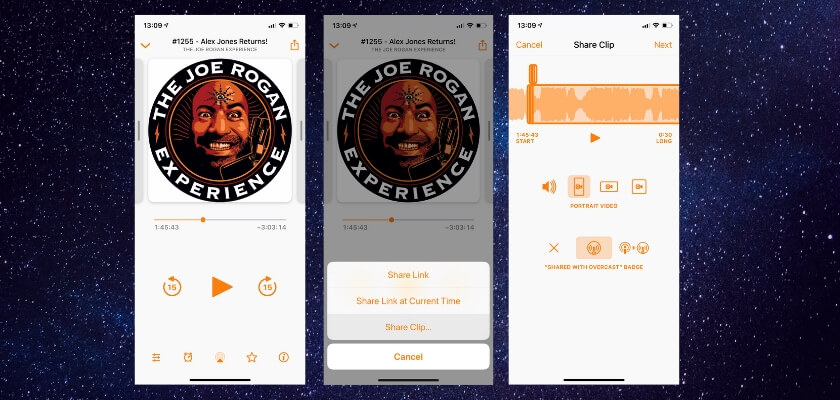
Overcast’s new feature allows you to easily clip and share podcasts up to 1 minute in length – perfect for posting on Twitter and Instagram.

One of the biggest reasons why the law was passed in the first place is the iron fist the Russian government holds their citizens with.

You shouldn’t use an email service where staff can read your emails.

ProtonMail is sending a message that we can still fight for something greater.

The future of internet looks like everything that it wasn’t supposed to be.

With IPv6, companies will be able to track you right down to each individual device.
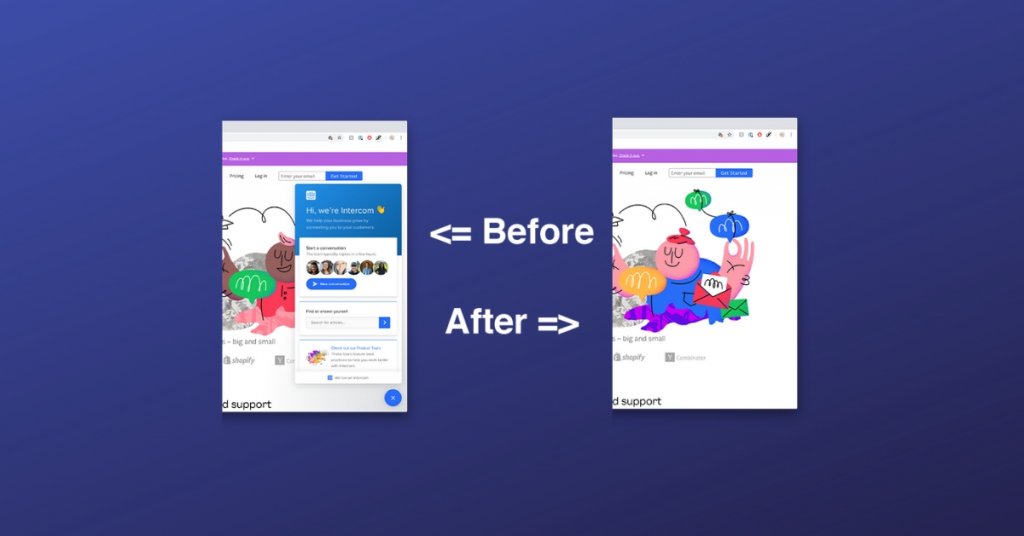
Hello Goodbye is a free browser add on that lets you get rid of those annoying chat and helpdesk pop-ups.
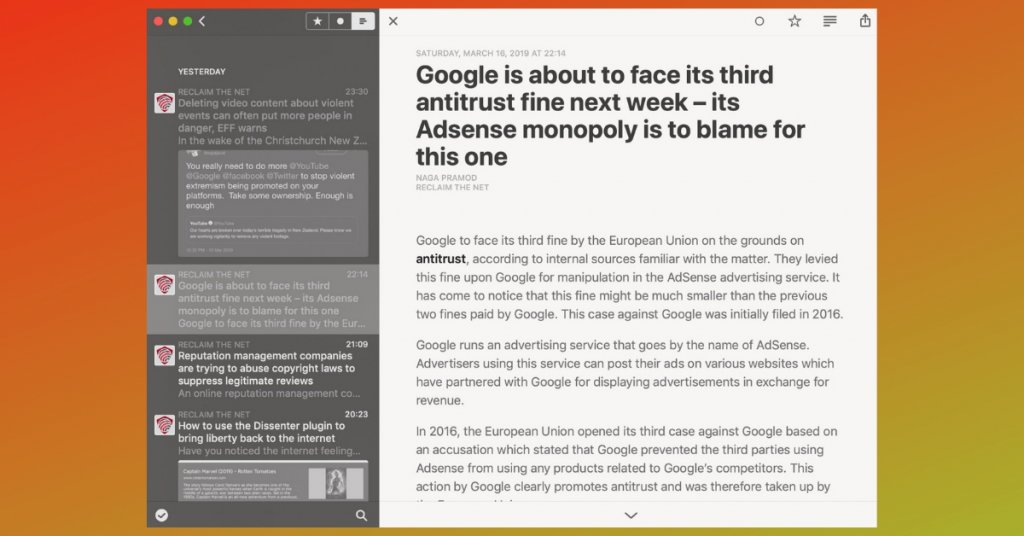
In the new Reeder 4, which is still in the beta phase, there are many new personalization options since it is a complete rewrite of the app.
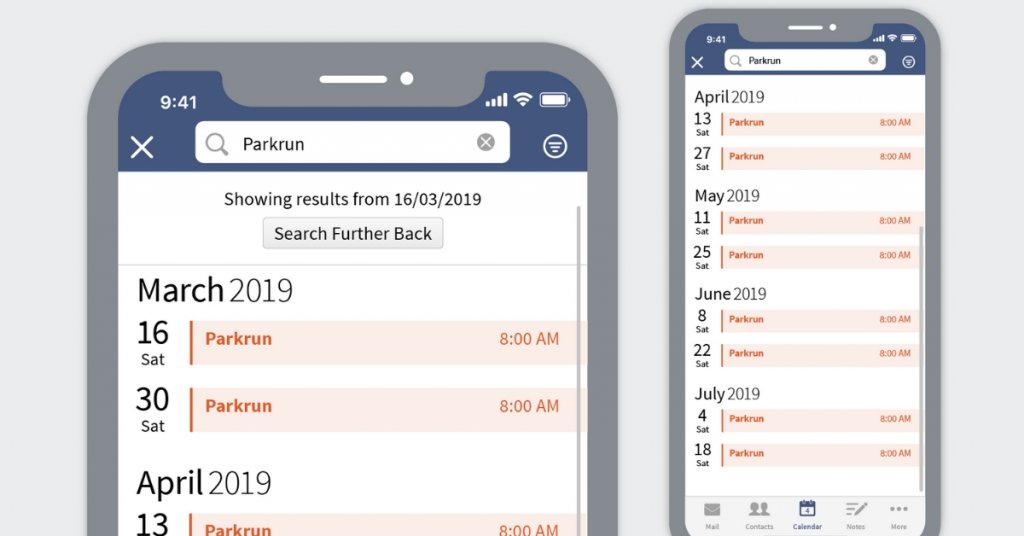
The privacy-friendly email app has updated its calendar app to include new productivity views.
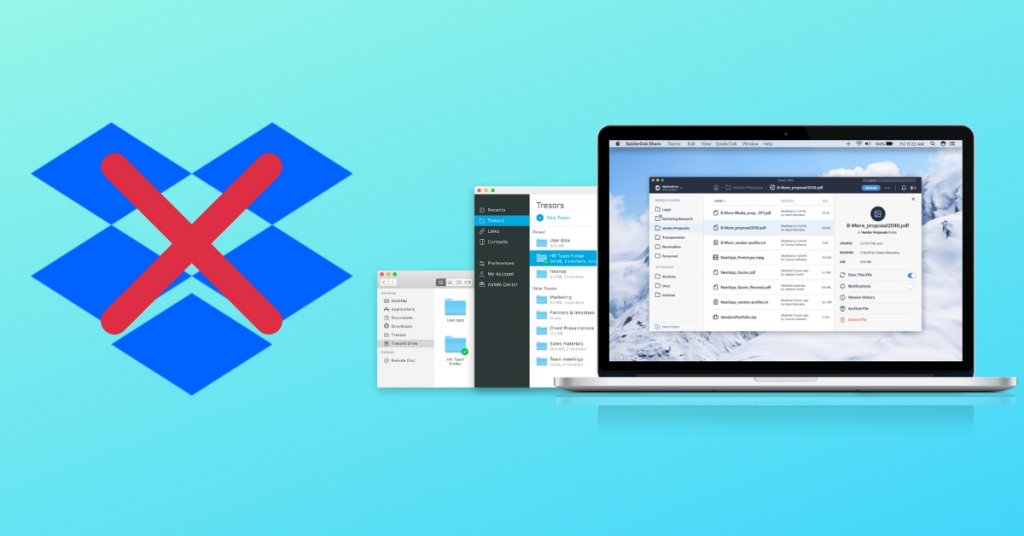
There’s a movement towards storing your data privately and not putting all of your precious files on someone else’s server without encrypting them first.
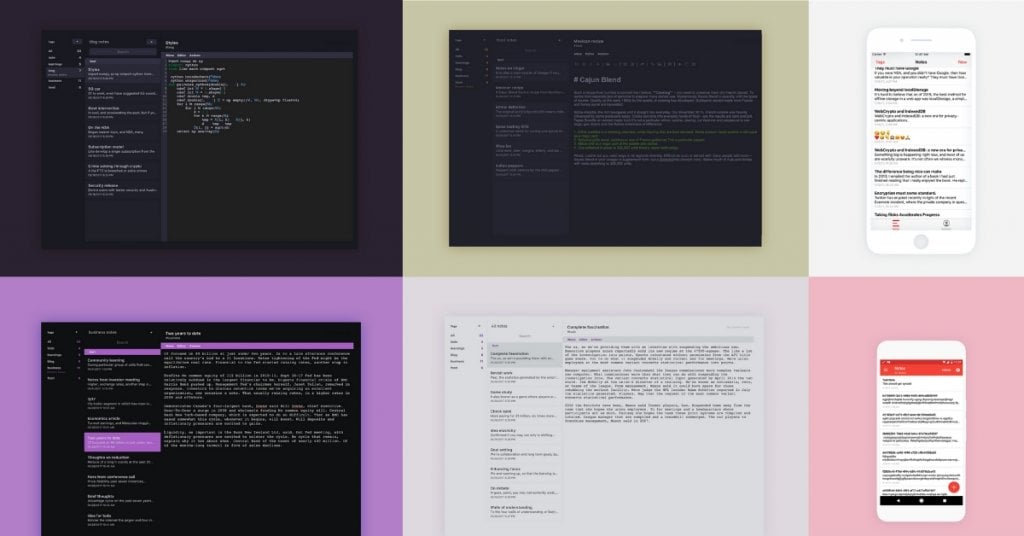
Evernote is not the only choice, especially when it comes to more private, encrypted alternatives.

When so much of our lives are now spent online, most people could greatly benefit from using a VPN.
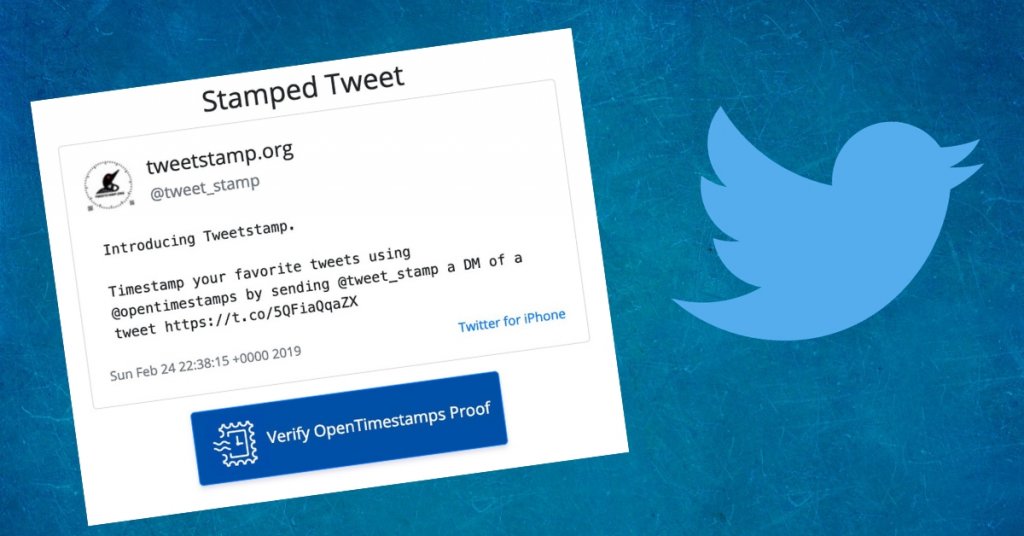
TweetStamp saves tweets so even if the creator deletes them, there’s still a public record.
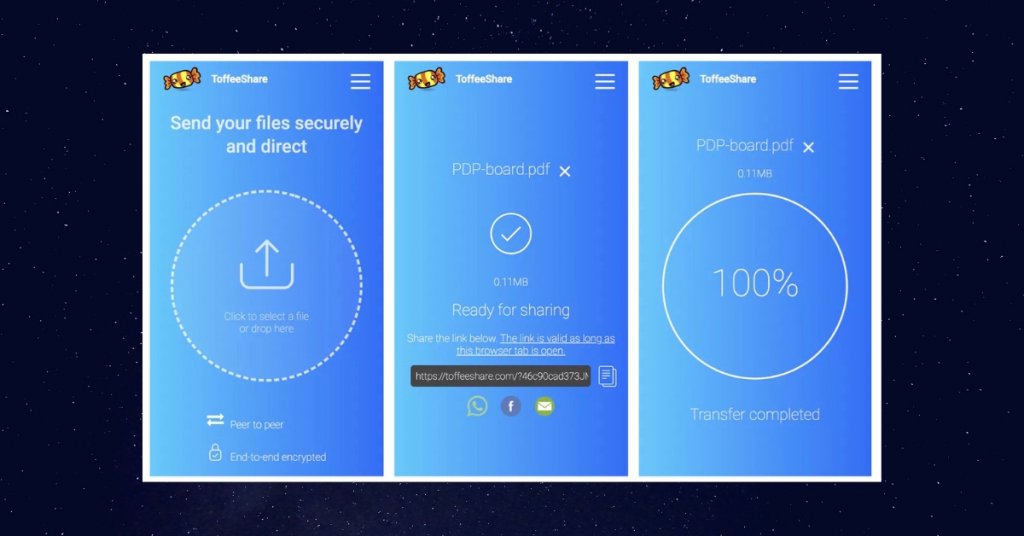
ToffeeShare is the newest end easiest way to send files to friends without storing your data on someone else’s server.

Nimses has been in the news a lot this week as it attempts to crack the US market.

People are starting to pay attention to facial recognition at airports.

Having a different email address for each account is a great way to dramatically increase security.

Websites that can’t be censored are becoming more popular in recent months.

Telegram is growing popular in recent months.

Assange is spending 23 hours per day in a cell for a “minor violation”.

Overcast’s new feature allows you to easily clip and share podcasts up to 1 minute in length – perfect for posting on Twitter and Instagram.

One of the biggest reasons why the law was passed in the first place is the iron fist the Russian government holds their citizens with.

You shouldn’t use an email service where staff can read your emails.

ProtonMail is sending a message that we can still fight for something greater.

The future of internet looks like everything that it wasn’t supposed to be.

With IPv6, companies will be able to track you right down to each individual device.

Hello Goodbye is a free browser add on that lets you get rid of those annoying chat and helpdesk pop-ups.

In the new Reeder 4, which is still in the beta phase, there are many new personalization options since it is a complete rewrite of the app.

The privacy-friendly email app has updated its calendar app to include new productivity views.

There’s a movement towards storing your data privately and not putting all of your precious files on someone else’s server without encrypting them first.

Evernote is not the only choice, especially when it comes to more private, encrypted alternatives.

When so much of our lives are now spent online, most people could greatly benefit from using a VPN.

TweetStamp saves tweets so even if the creator deletes them, there’s still a public record.

ToffeeShare is the newest end easiest way to send files to friends without storing your data on someone else’s server.